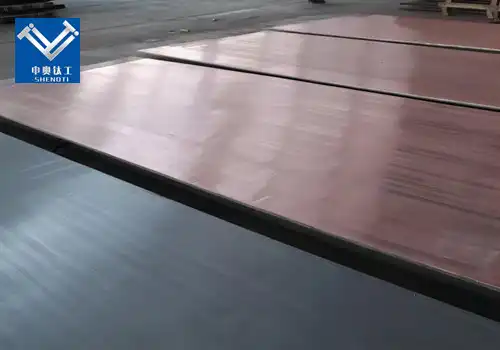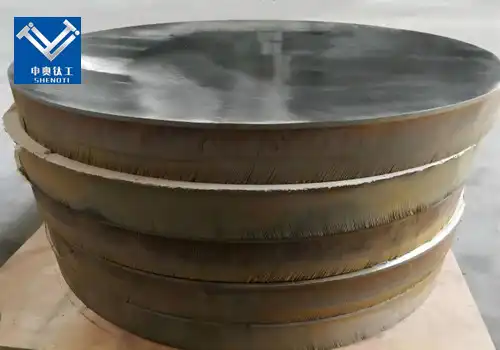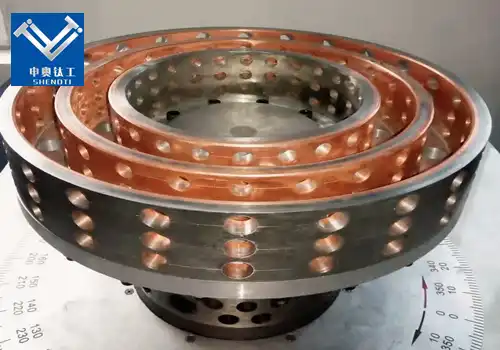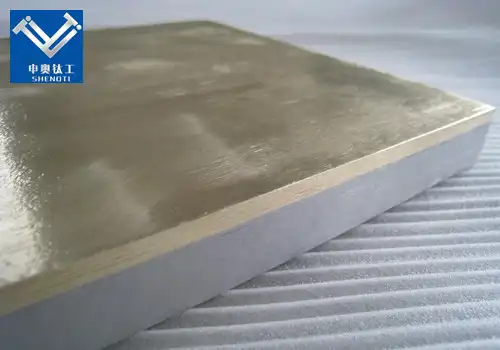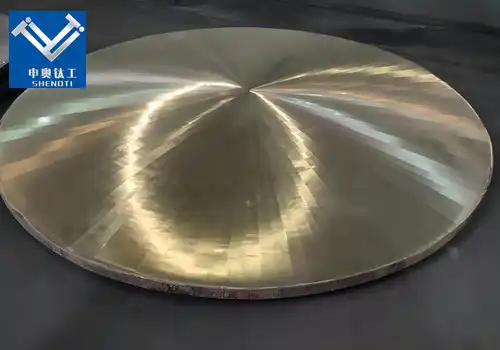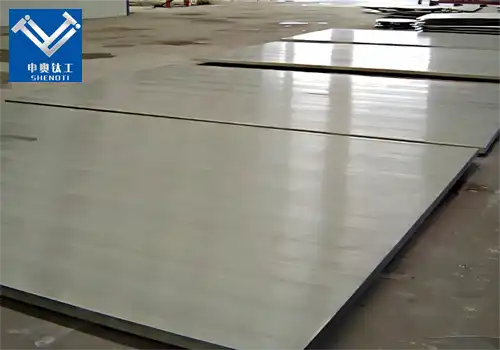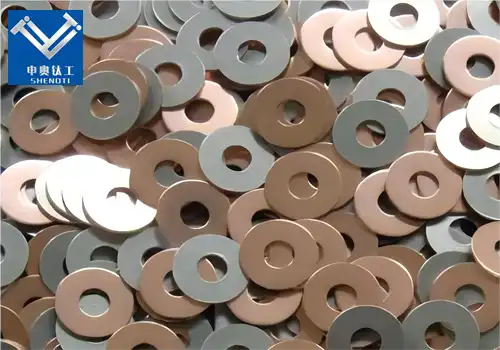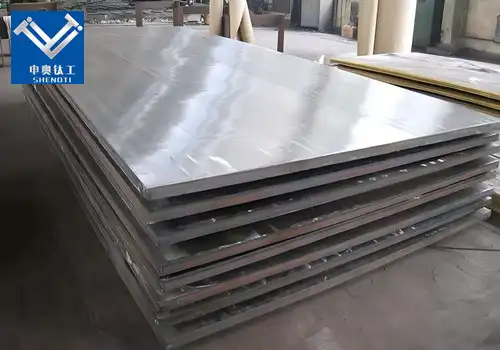
Nickel Steel Clad Plate is Manufactured?
2025-07-12 15:22:22
Nickel steel clad plates are revolutionizing modern engineering, combining the superior corrosion resistance of nickel with the strength and affordability of carbon or alloy steel. In industries where durability and reliability are critical—such as chemical processing, marine engineering, energy, and aerospace—nickel steel clad plates provide unmatched performance at optimized costs.
What Is a Nickel Steel Clad Plate?
A nickel steel clad plate is a type of bimetallic composite material that combines a nickel alloy layer with a steel base through explosion bonding, hot rolling, or other metallurgical bonding processes. The goal is to achieve a composite that offers both mechanical strength and high corrosion resistance.
Nickel Steel Clad Plate is Manufactured?
The most common technique for producing nickel steel clad plates is explosion welding—a solid-state bonding process that uses controlled explosive energy to bond dissimilar metals. Other methods include:
Hot rolling cladding
Each process ensures metallurgical integrity and long-term stability between the nickel layer and the steel substrate.
Key Benefits of Nickel Steel Clad Plate
The growing demand for nickel steel clad plates stems from their remarkable combination of performance and cost-efficiency. Here are some core benefits:
1. Corrosion Resistance
Nickel exhibits exceptional resistance to:
Acids (sulfuric, hydrochloric, and nitric)
Alkalis
Chloride-induced pitting and crevice corrosion
This makes the clad plate ideal for environments exposed to aggressive chemical media.
2. Cost-Effectiveness
Using solid nickel plates is often prohibitively expensive. By using nickel steel clad plates, manufacturers achieve the desired corrosion resistance at a significantly lower cost due to the reduced amount of nickel required.
3. High Mechanical Strength
The steel substrate provides excellent mechanical performance, including:
High tensile strength
Impact resistance
Structural load-bearing capacity
This ensures the plate can be used in heavy-duty applications.
4. Versatility in Design
The product can be tailored in:
Thickness ratios (nickel layer vs. steel base)
Plate size and dimensions
Specific nickel alloy grades (e.g., Nickel 200, Alloy 400, Alloy 625)
Common Applications of Nickel Steel Clad Plate
Nickel steel clad plates are widely adopted across sectors that require chemical resistance and structural durability.
1. Chemical Processing Industry
In chemical reactors, heat exchangers, and pressure vessels, nickel cladding protects the steel from highly corrosive process media.
2. Oil and Gas Sector
Used in offshore platforms, risers, and pipe flanges, nickel steel clad plates provide critical protection against seawater, sour gas, and high-pressure conditions.
3. Power Generation
Nickel-clad steel is used in:
Nuclear fuel containment
Condenser systems
Superheater tubes
This extends service life and minimizes downtime.
4. Desalination Plants
The nickel layer resists chloride corrosion, making the plate ideal for components exposed to saltwater.
5. Aerospace and Defense
Lightweight and durable, nickel steel clad plates are used in jet engine components, fuel systems, and military armor plating.
Nickel Steel Clad Plate Technical Specifications and Grades
When sourcing nickel steel clad plates, understanding technical specifications is crucial.
Nickel Layer Options
Nickel 200 / 201 – Pure nickel for strong corrosion resistance
Nickel-Copper Alloy 400 (Monel 400) – Resists seawater and acidic conditions
Nickel-Chromium Alloys (e.g., Alloy 600/625) – Ideal for high-temperature applications
Steel Base Options
Carbon Steel (e.g., Q235, A36) – Cost-effective, common base
Alloy Steel (e.g., 16MnR, SA516Gr.70) – Enhanced mechanical properties
Stainless Steel (for tri-layer designs) – For dual corrosion resistance
Cladding Thickness
Typical thickness ranges:
Nickel layer: 1–10 mm
Steel base: 10–100 mm
Custom configurations available upon request.
How to Select the Right Nickel Steel Clad Plate
When choosing a nickel steel clad plate, consider:
1. Corrosive Environment
Match the nickel alloy to the type of chemical exposure. For example:
Acidic process → Nickel 200
Marine environment → Monel 400
High heat & corrosion → Inconel 625
2. Operating Temperature
Ensure the plate can maintain structural integrity at the application’s maximum temperature.
3. Pressure Rating
Especially in pressure vessels or pipelines, the base steel must support the required pressure.
4. Certification Requirements
Ask for plates that meet standards such as:
ASME SA-263 / SA-264
ASTM B162 / B127 / B443
PED / ISO / NACE MR0175
Why Choose Nickel Steel Clad Plate Over Traditional Materials?
Let’s explore why industries are rapidly adopting clad metal technologies:
Sustainability
By reducing the use of nickel (a high-energy material to produce), nickel steel clad plates promote greener manufacturing.
Extended Service Life
Components made from nickel-clad materials last longer, reducing replacement frequency and maintenance costs.
Lower Total Cost of Ownership
Initial investment in clad plates leads to major long-term savings in corrosion-related repairs and replacements.
Nickel Steel Clad Plate Market Trends
The global market for nickel steel clad plates is growing steadily, driven by:
Expansion of petrochemical and LNG facilities
Increasing need for corrosion-resistant infrastructure
Government regulations promoting safer materials in pressure systems
Manufacturers around the world are increasing their capacity to meet the rising demand for high-performance clad materials.
Our Nickel Steel Clad Plate Capabilities
At Baoji ShenAo Metal Materials Co., Ltd., we specialize in custom nickel steel clad plates engineered for your industry.
We Offer:
Explosion bonded nickel-steel plates
One-stop service from bonding to machining
Thickness range: 1 mm to 150 mm
Length/width as per drawings or custom specs
Nickel alloys: Nickel 200, Monel 400, Alloy 600, Alloy 625
Our technical team ensures quality control across every stage—from material selection to ultrasonic testing.
Contact Us for Premium Nickel Steel Clad Plate Solutions
If you're sourcing nickel steel clad plates for your industrial applications, we are here to help. With over 15 years of experience in bimetallic solutions, Baoji ShenAo delivers precision, performance, and peace of mind.
Email: zh@baojiti.com.cn
Website: shenaocladplate.com
Address: High-tech Zone, Baoji, China
Partner with us for your next project—and unlock the full potential of nickel steel clad plate technology.
YOU MAY LIKE











